This section contains video recordings of the course lectures.



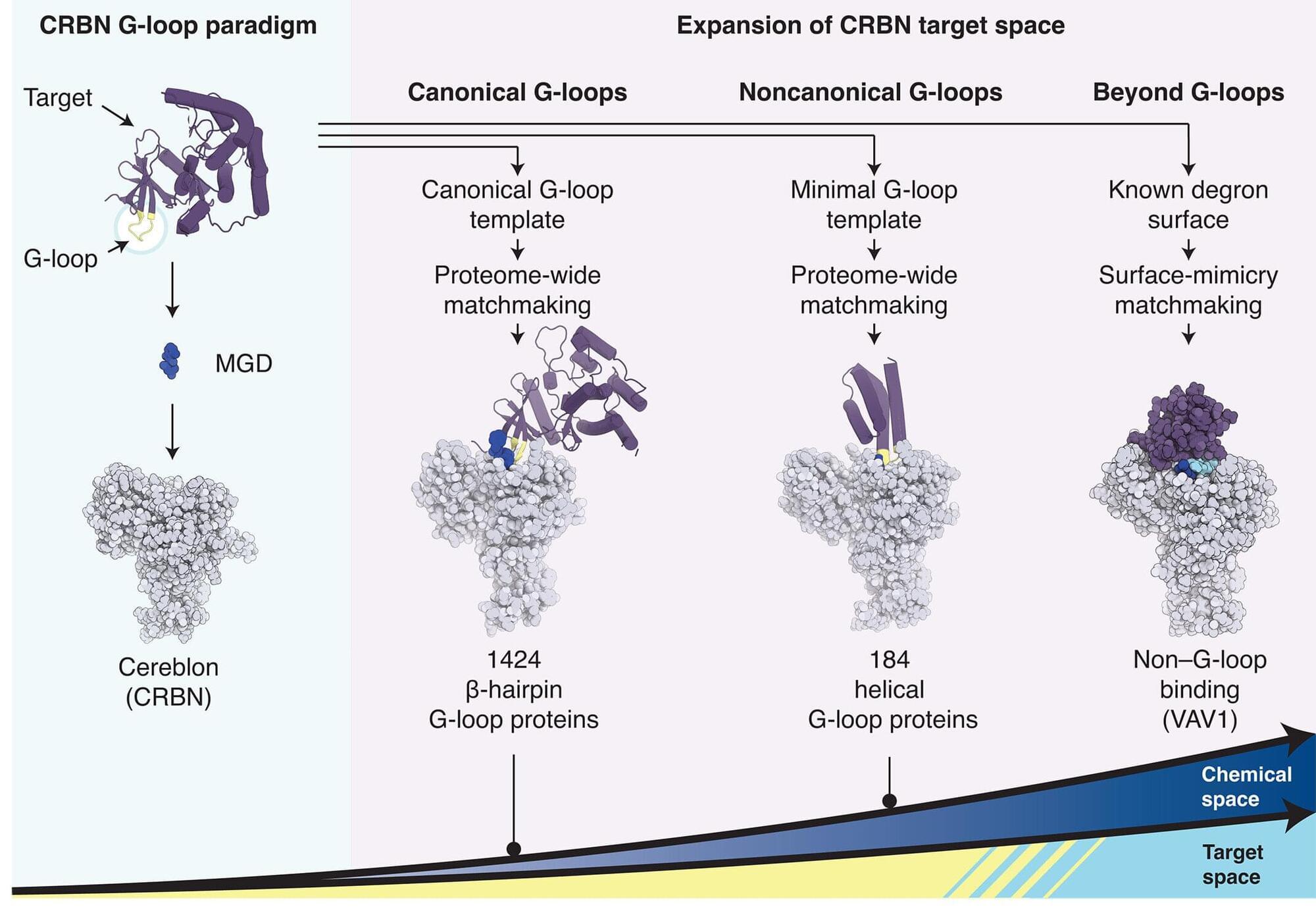
Molecular glues, tiny molecules that connect one protein to another, are promising targets for pharmaceutical research. By linking a disease-related protein to one that triggers a cell’s demolition and recycling pathways, pharmaceutical researchers have been able to develop novel therapies for otherwise drug-resistant diseases.
It was thought, however, that this approach to drug development was limited to only those proteins that had a specific surface feature called a beta-hairpin loop motif.
Expanding on this once-narrow discovery space, new research published in the journal Science has uncovered a vastly wider array of protein surface features capable of binding with a molecular glue degrader (a pharmaceutical version of a molecular glue molecule). These results may open new pathways for treating diseases by targeting proteins previously thought to be ‘untouchable’ to drug therapies.
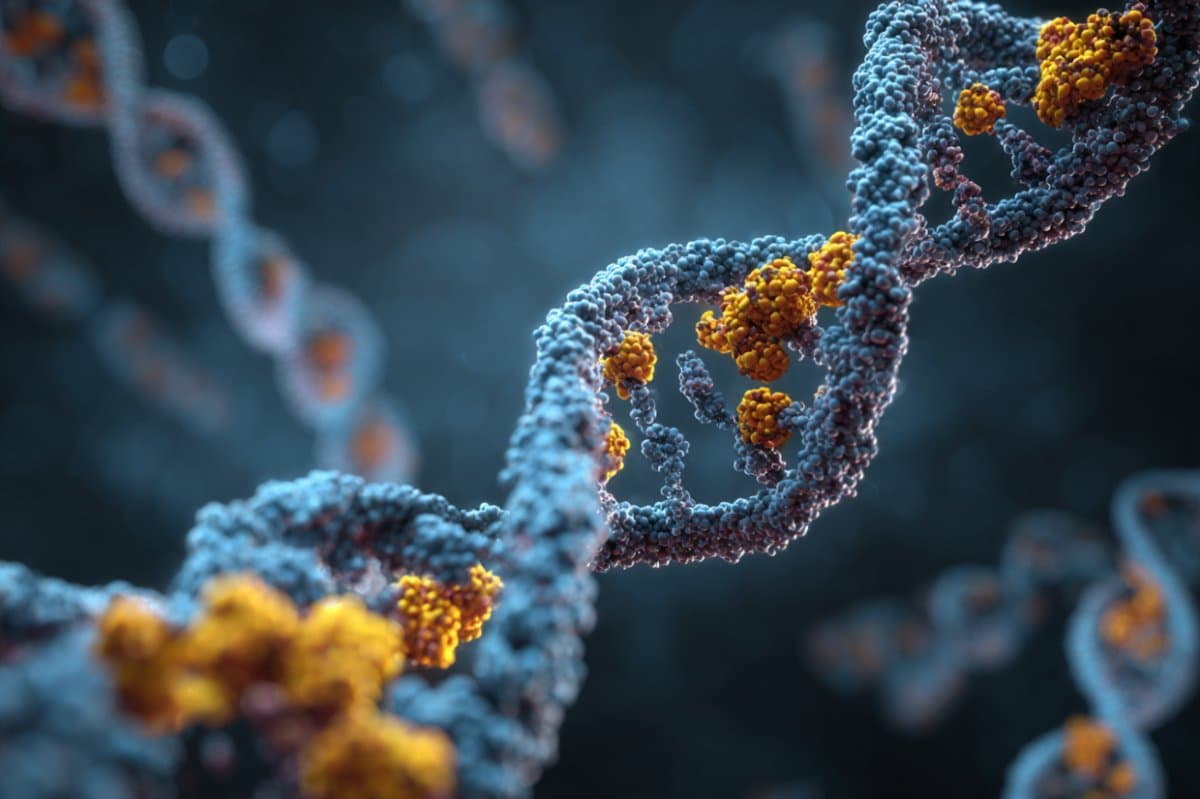
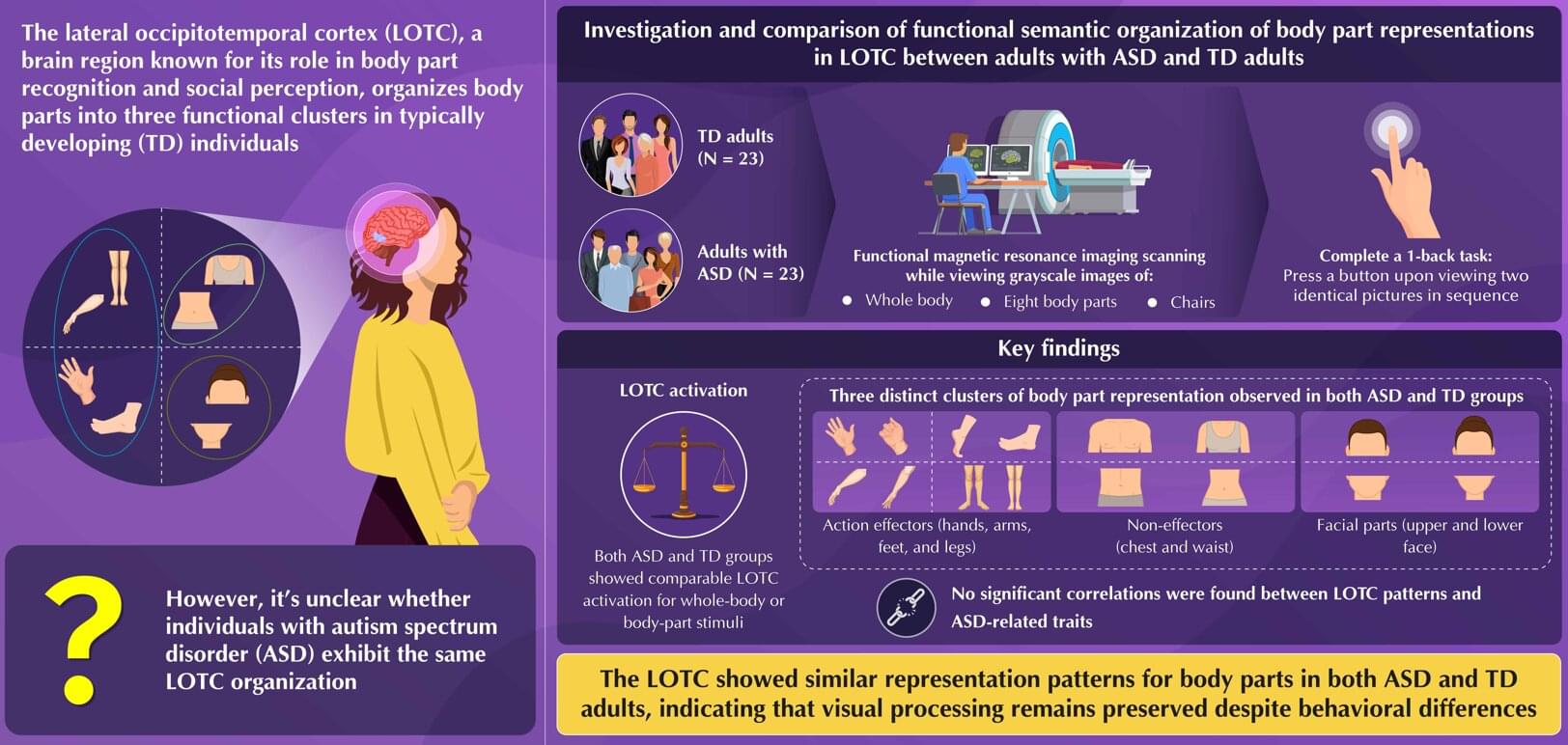
Autism spectrum disorder (ASD), a neurodevelopmental condition, is often associated with difficulties in social communication and repetitive behavior. Previous research reveals that people with ASD often find it challenging to interpret intentions from body language and have difficulty recognizing faces and emotions, which may contribute to their social communication problems.
Scientists speculate that these challenges might arise from differences in how the brain perceives faces and body parts, i.e., how individuals with ASD represent the human body. However, until now, no study had clearly mapped how body parts are represented in the brains of adults with autism or whether that organization differs from normal or typically developing (TD) adults.
In a detailed neuroimaging study involving adults in Japan, researchers addressed this knowledge gap by examining how ASD represents body parts in the brain. This study was published in the journal Imaging Neuroscience. A team of researchers used functional magnetic resonance imaging (fMRI) to compare brain activity patterns in adults with ASD and TD adults as they viewed images of body parts.
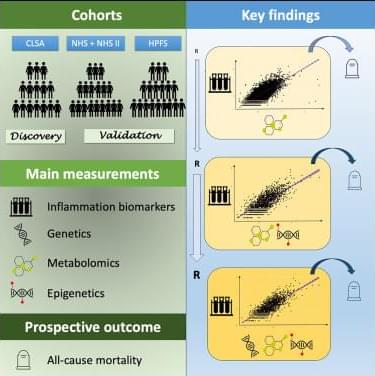
We developed single-and multi-omics risk scores to assess blood inflammation markers and validated them across three cohorts. Our multi-omics models outperformed blood markers in predicting all-cause mortality, offering a more comprehensive approach to capturing inflammation burden. This may help identify at-risk populations for targeted interventions to reduce inflammation-related mortality.
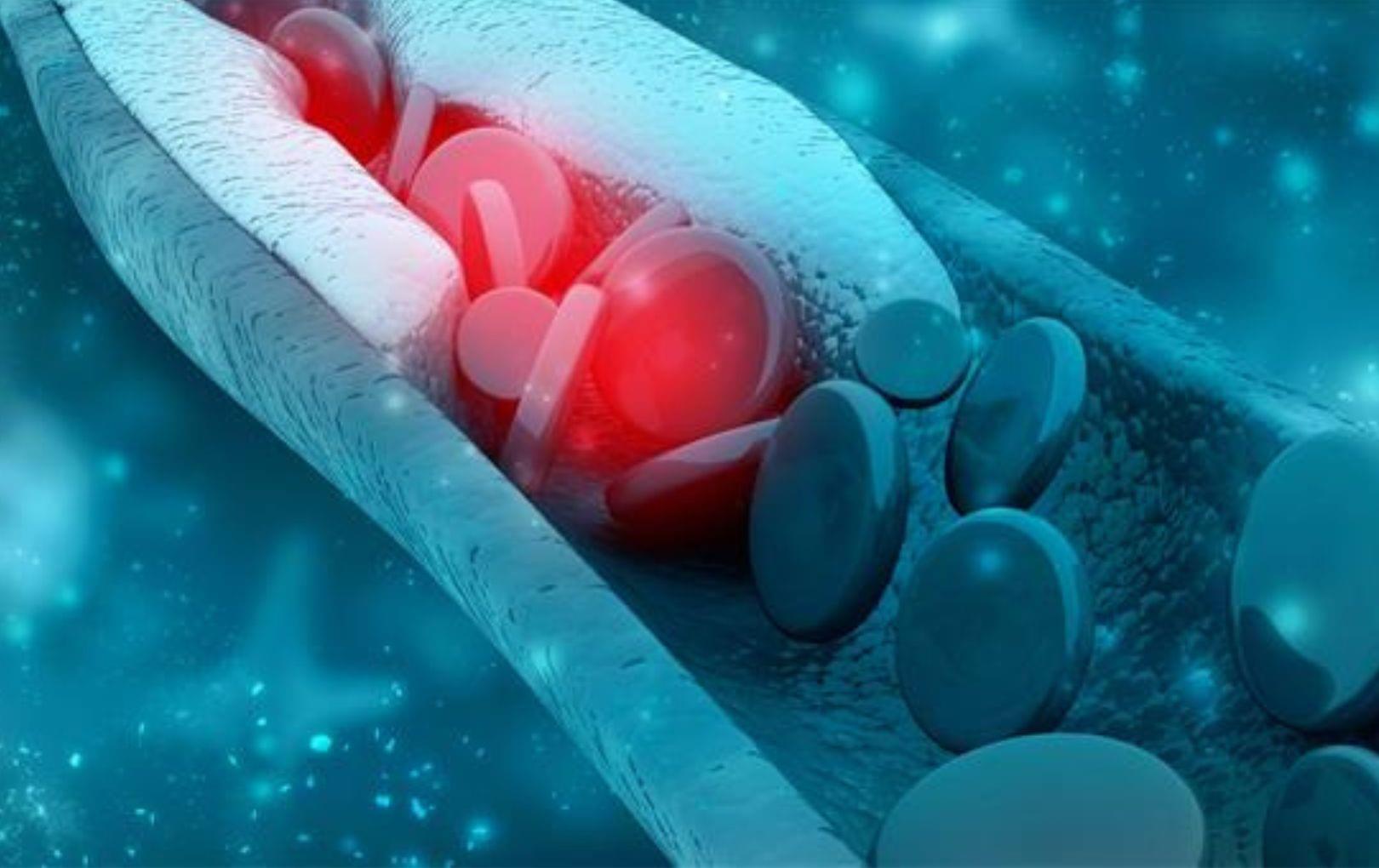
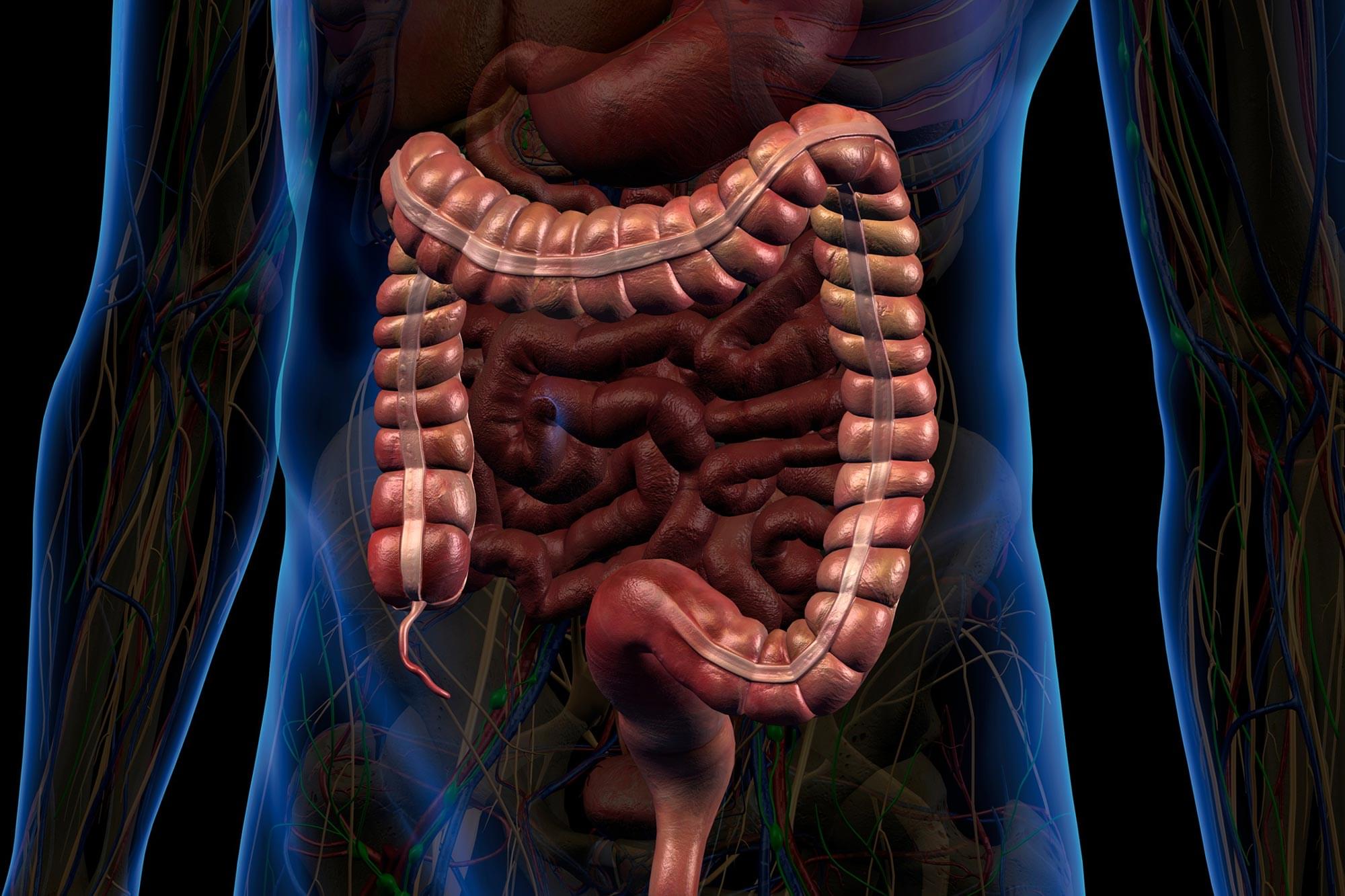
Researchers are gaining a deeper appreciation for the critical role the gastrointestinal (GI) tract plays in maintaining overall health. Beyond its primary responsibilities in digestion, the GI system contributes to the production of hormones, immune cells, and neurotransmitters that influence brain function and emotional well-being.
Because of this, the GI tract contains a wide array of biomarkers that are valuable for diagnosing, tracking, and managing disease—from short-chain fatty acids associated with metabolic syndrome to cytokines linked to inflammation.
However, current technologies fall short when it comes to capturing this biochemical information directly from the GI tract. Existing methods, such as fecal sampling and tissue biopsies, are often invasive, costly, and unable to deliver continuous or comprehensive real-time data throughout the length of the digestive system.
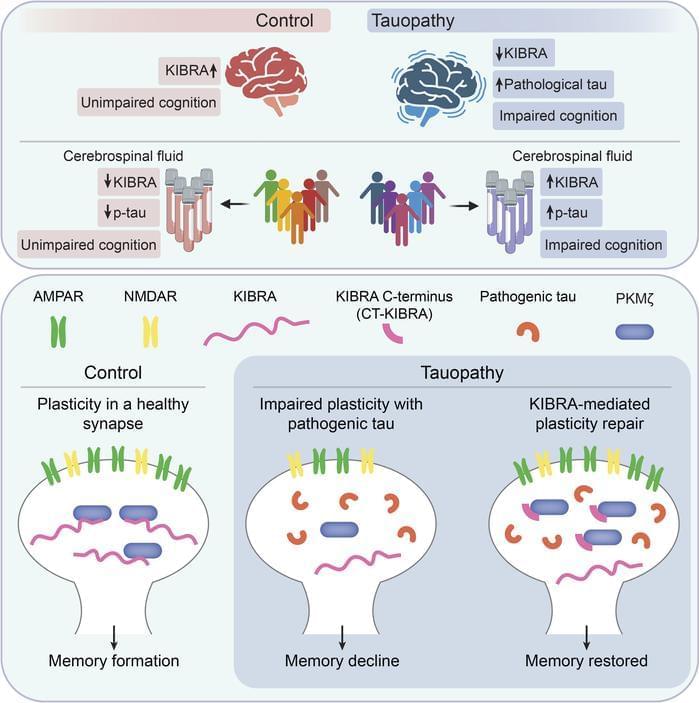
Representing a key mechanism that underlies memory loss in Alzheimer’s disease (AD) and related tauopathies. Here, we found that reduced levels of the memory-associated protein KIdney/BRAin (KIBRA) in the brain and increased KIBRA protein levels in cerebrospinal fluid are associated with cognitive impairment and pathological tau levels in disease. We next defined a mechanism for plasticity repair in vulnerable neurons using the C-terminus of the KIBRA protein (CT-KIBRA). We showed that CT-KIBRA restored plasticity and memory in transgenic mice expressing pathogenic human tau; however, CT-KIBRA did not alter tau levels or prevent tau-induced synapse loss. Instead, we found that CT-KIBRA stabilized the protein kinase Mζ (PKMζ) to maintain synaptic plasticity and memory despite tau-mediated pathogenesis. Thus, our results distinguished KIBRA both as a biomarker of synapse dysfunction and as the foundation for a synapse repair mechanism to reverse cognitive impairment in tauopathy.
1Buck Institute for Research on Aging, Novato, California, USA.
2Memory and Aging Center, Department of Neurology, University of California San Francisco, San Francisco, California, USA.
3Gladstone Institutes, San Francisco, Califoria, USA.
4Weill Institute for Neurosciences, Department of Pathology, University of California San Francisco, San Francisco, California, USA.
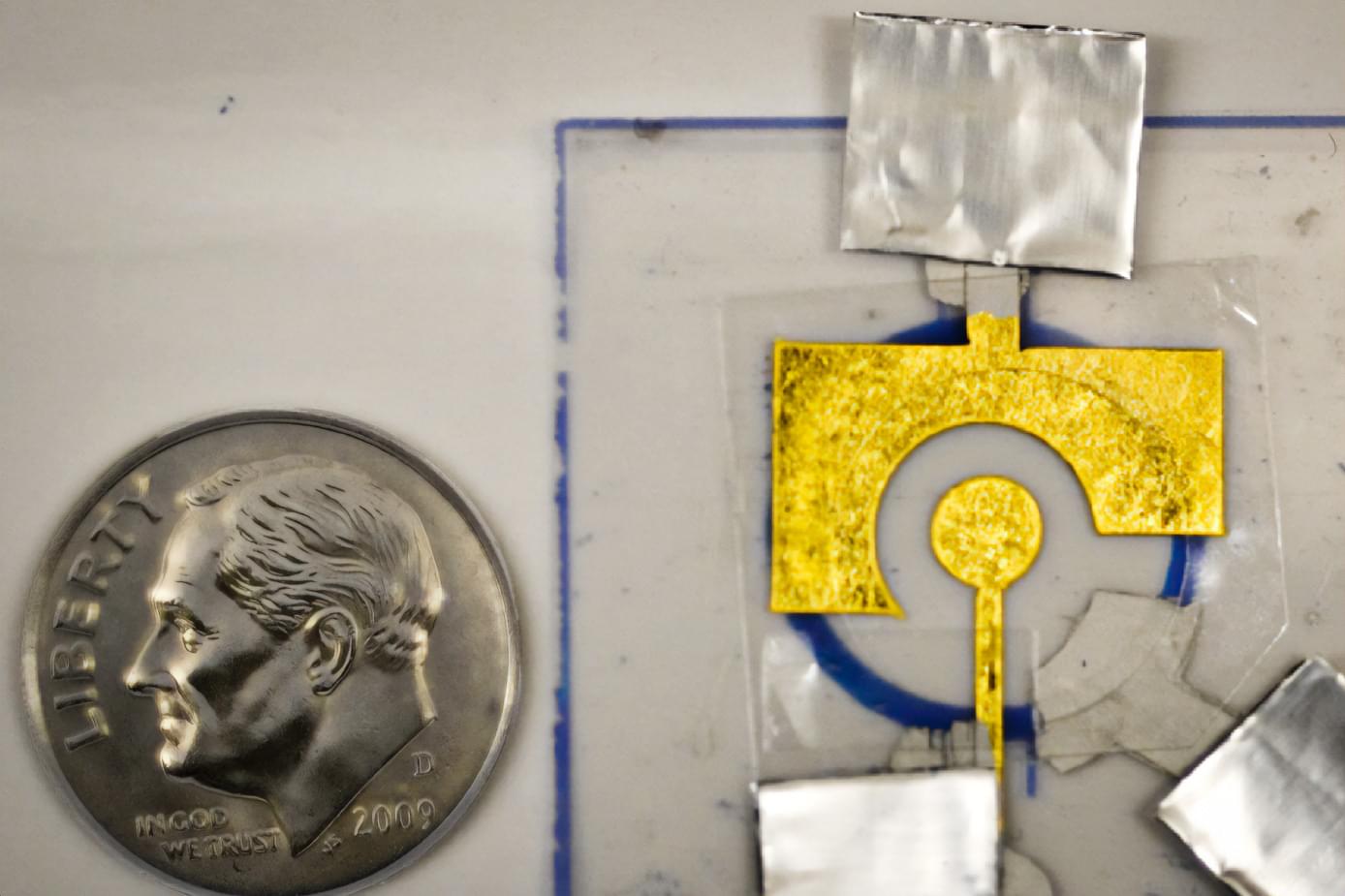
Using an inexpensive electrode coated with DNA, MIT researchers have designed disposable diagnostics that could be adapted to detect a variety of diseases, including cancer or infectious diseases such as influenza and HIV.
These electrochemical sensors make use of a DNA-chopping enzyme found in the CRISPR gene-editing system. When a target such as a cancerous gene is detected by the enzyme, it begins shearing DNA from the electrode nonspecifically, like a lawnmower cutting grass, altering the electrical signal produced.
One of the main limitations of this type of sensing technology is that the DNA that coats the electrode breaks down quickly, so the sensors can’t be stored for very long and their storage conditions must be tightly controlled, limiting where they can be used. In a new study, MIT researchers stabilized the DNA with a polymer coating, allowing the sensors to be stored for up to two months, even at high temperatures. After storage, the sensors were able to detect a prostate cancer gene that is often used to diagnose the disease.